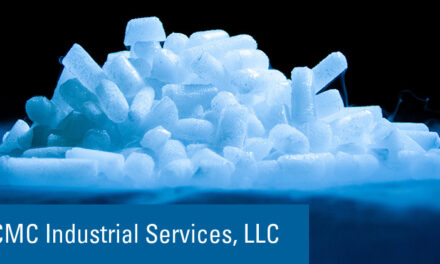Automobiles, airplanes, homes all have something in common: they all use a material called polyurethane foam. Polyurethane foam is an umbrella term used to describe any foam that is manufactured using polyol and diisocyanate. The use of polyurethane dates back to World War II where it was first used as a replacement for rubber. Today, polyurethane foam has been incorporated into our everyday lives in ways we haven’t noticed. It makes mattresses comfortable, keeps homes insulated and is used in airline and bus transportation seating.
The NCFI manufacturing facility in Mount Airy, North Carolina, contributes to the growing polyurethane industry. NCFI uses the latest technology to keep up with the growing number of applications that are using polyurethane foam.
50 Years of NCFI Foam Solutions
NCFI was organized in 1964 by research chemist Dr. H. W. Bradley and parent company Barnhardt Manufacturing Company. NCFI quickly became a leader in manufacturing flexible polyurethane foam for transportation, furniture, roofing, geotechnical and custom uses. In 1966, the organization moved to Mount Airy, NC. Their facility has expanded eight times to reach its current 280,000 square feet. NCFI has two additional locations: located in Dalton, GA and Houston, Texas.
Striving for Quality
In March of 2020, Chip Holton, the president of NCFI, set an ambitious goal for the organization to finish their ISO 9001 certification in six months. NCFI was already in the medical bedding industry before the COVID-19 pandemic but when the pandemic hit, the need for medical bedding was dire and the organization saw this moment as a chance to grow. Steve Sanderson, quality assurance manager for NCFI, was at the forefront of helping to implement this change. Sanderson said, “We didn’t want to be a one-trick pony. We saw an opportunity to get ISO 9001 certified, improve our quality and expand our customer base.”
NCFI called on the aid of North Carolina Manufacturing Extension Partnership (NCMEP) partner NC State Industry Expansion Solutions (IES) because the two organizations have history. Sanderson said, “We were introduced to IES by Surry Community College in 2017.”
Prior to the COVID-19 pandemic, Surry Community College provided Customized Training funds for NCFI to begin an ISO 9001:2015 Implementation Program with IES. Unfortunately, NCFI had to put the implementation on hold due to a lack of time and resources.
Early into the pandemic, IES was invited back in to finish the job. Surry Community College again assisted with funding to kick start an aggressive initiative to prepare NCFI for ISO 9001:2015 certification within six months by having IES provide an ISO 9001:2015 Overview and Gap Analysis and ISO 9001:2015 Internal Auditor Training for their auditor team.
IES brought in Claire Pickrell, an improvement specialist to get the ball rolling. “Getting our auditing program off the ground was a tremendous boon. The auditor came in from IES and they ran the auditing show and showed us how to audit effectively. Everything they did was by the book and they were on us to make sure we did everything right.”
Sanderson says some of the simplest tasks, like learning how to hyperlink, made a huge difference. “We used to have a paper trail when it came to our operations. The IES improvement specialist helped us streamline our operations by showing us how to use digital documents and hyperlinks”, said Sanderson. The organization was able to achieve its goal of being ISO-certified in under six months.
From August to September 2020, IES provided NCFI with an Internal Audit, follow-up audits, and coaching for under $4,680 with help from the NCMEP Emergency Assistance Program (EAP). The EAP is a program launched with the help of Coronavirus Aid, Relief, and Economic Security Act (CARES) Act funding to support North Carolina manufacturers’ ability to respond to the coronavirus and improve their competitiveness during the coronavirus disruption.
Obtaining Organization-wide Improvements
“We’re currently selling a lot of mattresses. So many we can’t get enough raw materials in to make more.” Sanderson realizes this is partially due to the current state of American supply chains, but he also knows it’s a result of the ISO certification. “We picked up about 10-15% in the bedding market because of the ISO certification.”
NCFI noticed a difference soon after receiving their ISO certification. The certification helped NCFI expand its medical bedding market and helped them attract other clients. Sanderson recalled, “A month after our certification, we got audited by Costco. We’re selling to Costco now, something that wouldn’t have happened without an ISO certification.”
As a result of obtaining their ISO certification, NCFI created 25 new jobs and increased sales by $50,000. The company has also realized approximately $400K in economic impact ranging from cost savings to improved productivity and efficient streamlining. The certification helped the company train employees for skilled positions, streamline manufacturing processes and make it easier to work with clients like aircraft manufacturers. Sanderson said, “We used to fill out a lot of paperwork when working with aircraft manufacturers but now that we’re ISO certified, we just provide our ISO certification and we’re good to go.”
“IES has been fantastic,” Sanderson said. “Anything we expected or needed, they were right there. The IES improvement—Claire—laid out a clear blueprint for us to follow and explained why each step of the process was necessary. The professionalism and expertise they brought to the table was exemplary.”





